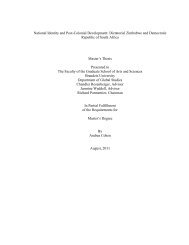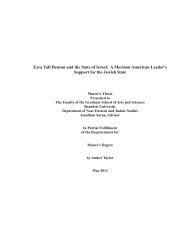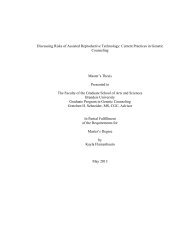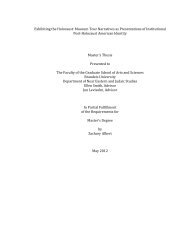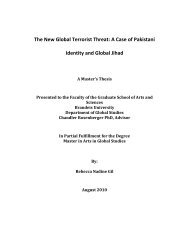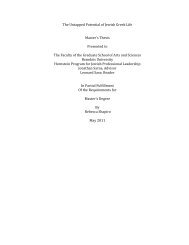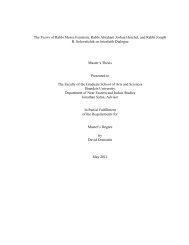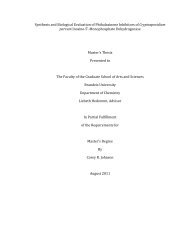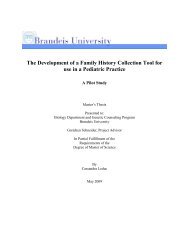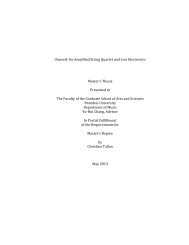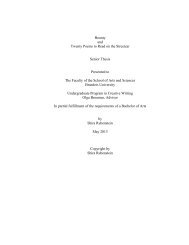A Familiar Frontier: The Kennedy Administration in the Congo ...
A Familiar Frontier: The Kennedy Administration in the Congo ...
A Familiar Frontier: The Kennedy Administration in the Congo ...
You also want an ePaper? Increase the reach of your titles
YUMPU automatically turns print PDFs into web optimized ePapers that Google loves.
A British official remarked to <strong>the</strong> press “If it is imperialist to try to halt fight<strong>in</strong>g before itgets out of hand, <strong>the</strong>n we’re imperialist.” 51Perhaps unsurpris<strong>in</strong>gly, <strong>the</strong> reaction of <strong>the</strong> United States was more ambivalent.After Hammarskjold’s death, <strong>the</strong> <strong>Kennedy</strong> <strong>Adm<strong>in</strong>istration</strong> had been anxious to bolster <strong>the</strong>legitimacy of <strong>the</strong> U.N. and so demonstrated a new will<strong>in</strong>gness to support its militaryactions <strong>in</strong> <strong>the</strong> <strong>Congo</strong>. <strong>The</strong> U.S. reversed course on its previous policy and allowedAmerican planes to be used to carry United Nations soldiers with<strong>in</strong> <strong>the</strong> <strong>Congo</strong> for <strong>the</strong>first time. Hammarskjold had requested this capability before his death, but <strong>the</strong> UnitedStates was only will<strong>in</strong>g to acquiesce on <strong>the</strong> even<strong>in</strong>g of September 18, <strong>in</strong> <strong>the</strong> hope that <strong>the</strong>use of <strong>the</strong> planes would “enhance chances achievement early cease fire under conditionsfavorable to UN achievement its basic objectives <strong>in</strong> <strong>Congo</strong>.” 52 <strong>The</strong> next day, <strong>Kennedy</strong>approved a cont<strong>in</strong>gent offer of eight U.S. fighter jets to support and defend U.N. transportplanes, but not to <strong>in</strong>tentionally seek out and engage enemy aircraft. In <strong>the</strong> end, <strong>the</strong> ceasefireand <strong>the</strong> arrival of airplanes from o<strong>the</strong>r U.N. nations meant that <strong>the</strong> Americancontribution was not needed.Never<strong>the</strong>less, <strong>Kennedy</strong>’s action was a major shift from <strong>the</strong> previousdiscouragement of any active <strong>in</strong>volvement, and it is tell<strong>in</strong>g that it happened <strong>in</strong> response toa change <strong>in</strong> <strong>the</strong> U.N. structure and not a change <strong>in</strong> <strong>the</strong> ground situation <strong>in</strong> Katanga. Ifanyth<strong>in</strong>g, <strong>Kennedy</strong>’s newfound resolve reflected his desire to end <strong>the</strong> fight<strong>in</strong>g <strong>in</strong> Katangaas soon as possible. Although this was a shift <strong>in</strong> American objectives, it is consistent withEisenhower’s earlier realization that <strong>the</strong> Katanga secession represented a untenablesituation for <strong>the</strong> <strong>Congo</strong>. This attitude <strong>in</strong>formed American read<strong>in</strong>gs of Tshombe’s actions51 Qtd. <strong>in</strong> Kalb, <strong>The</strong> <strong>Congo</strong> Cables, 30352 Telegram from Bowles to Gullion, FRUS, 1961-1963, 20:22788





